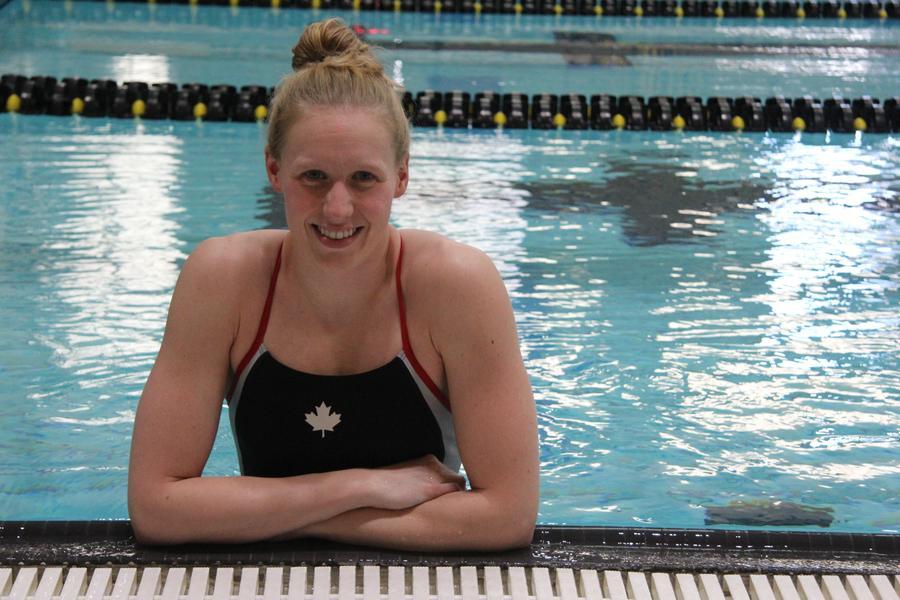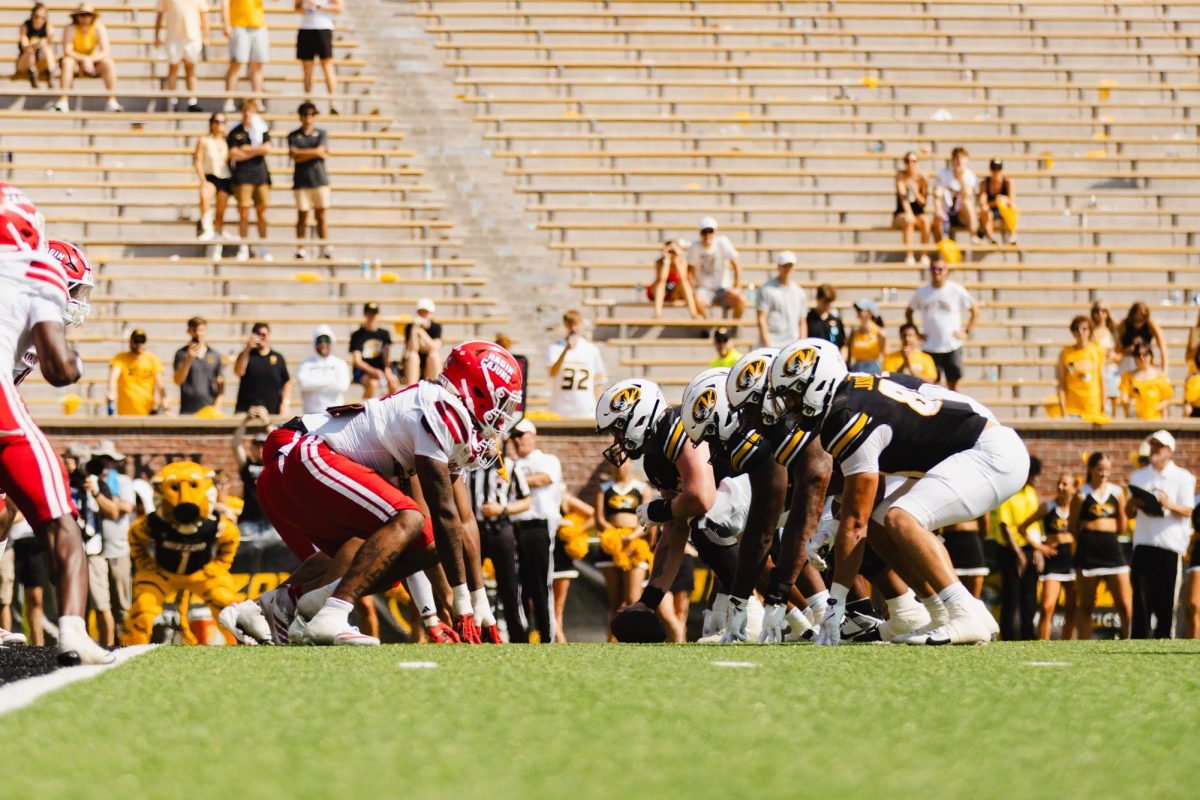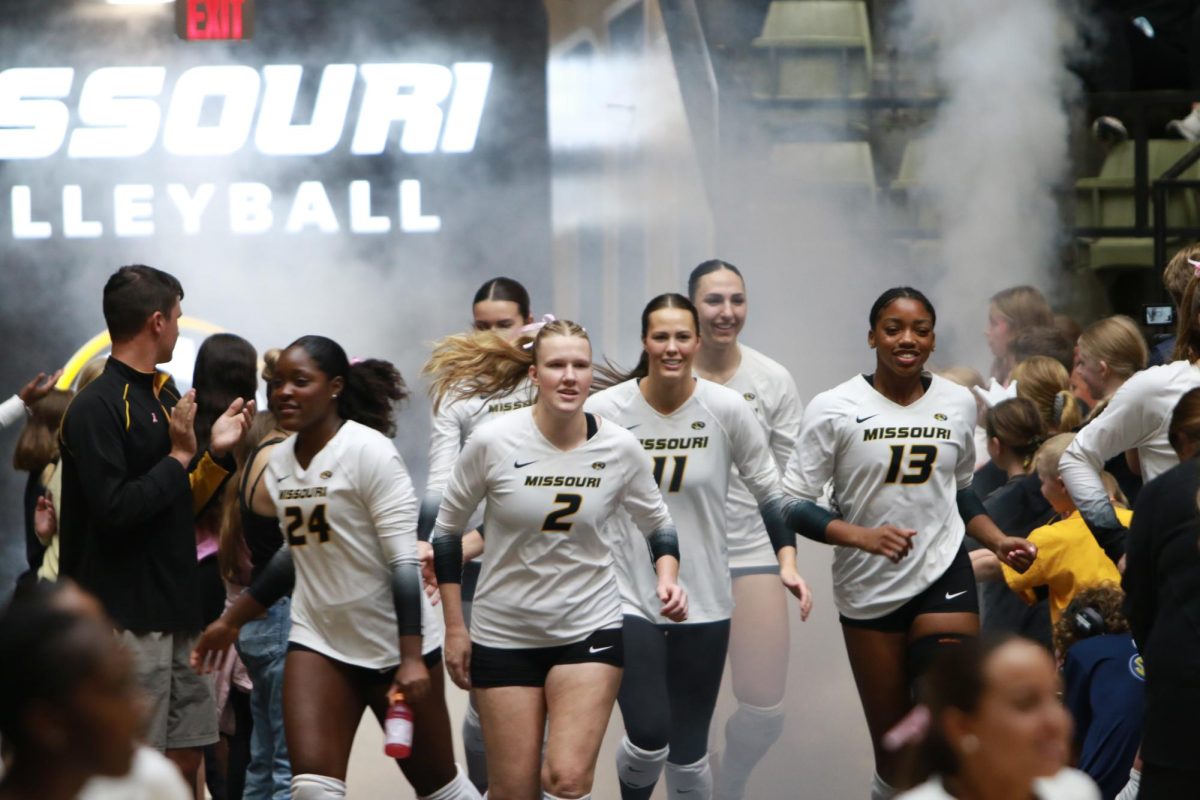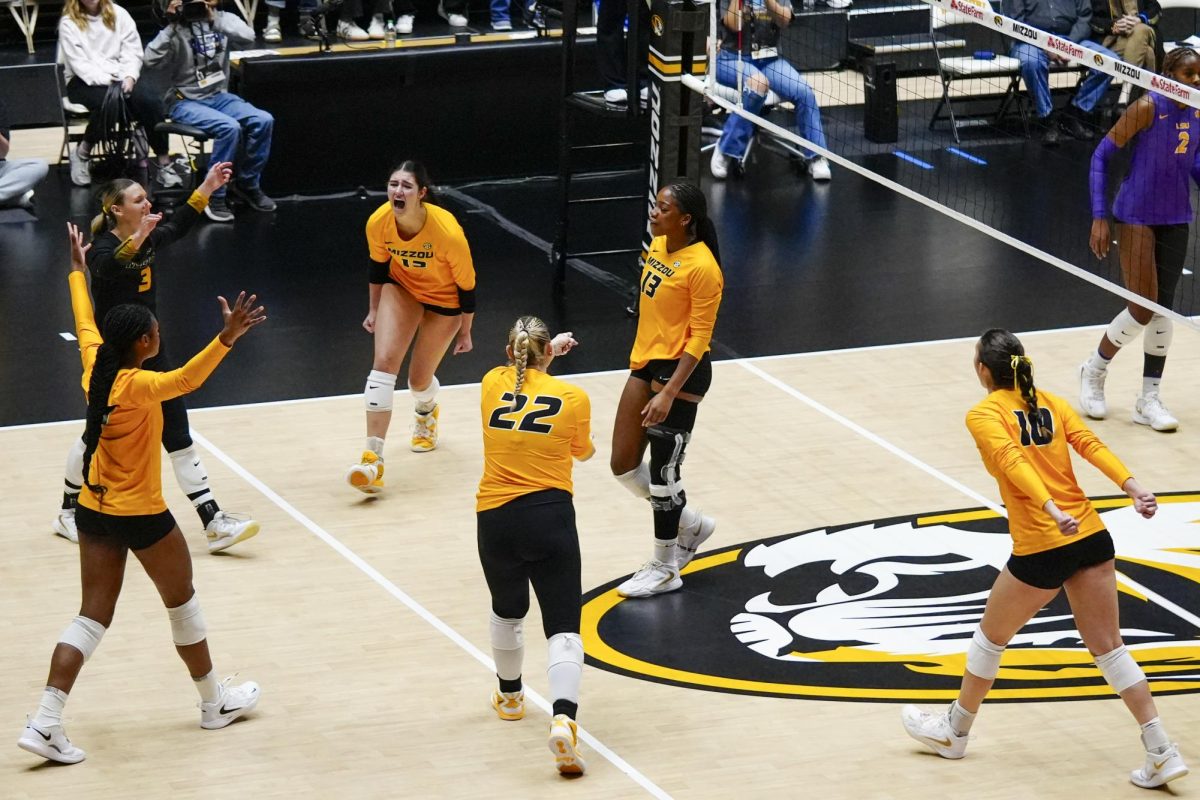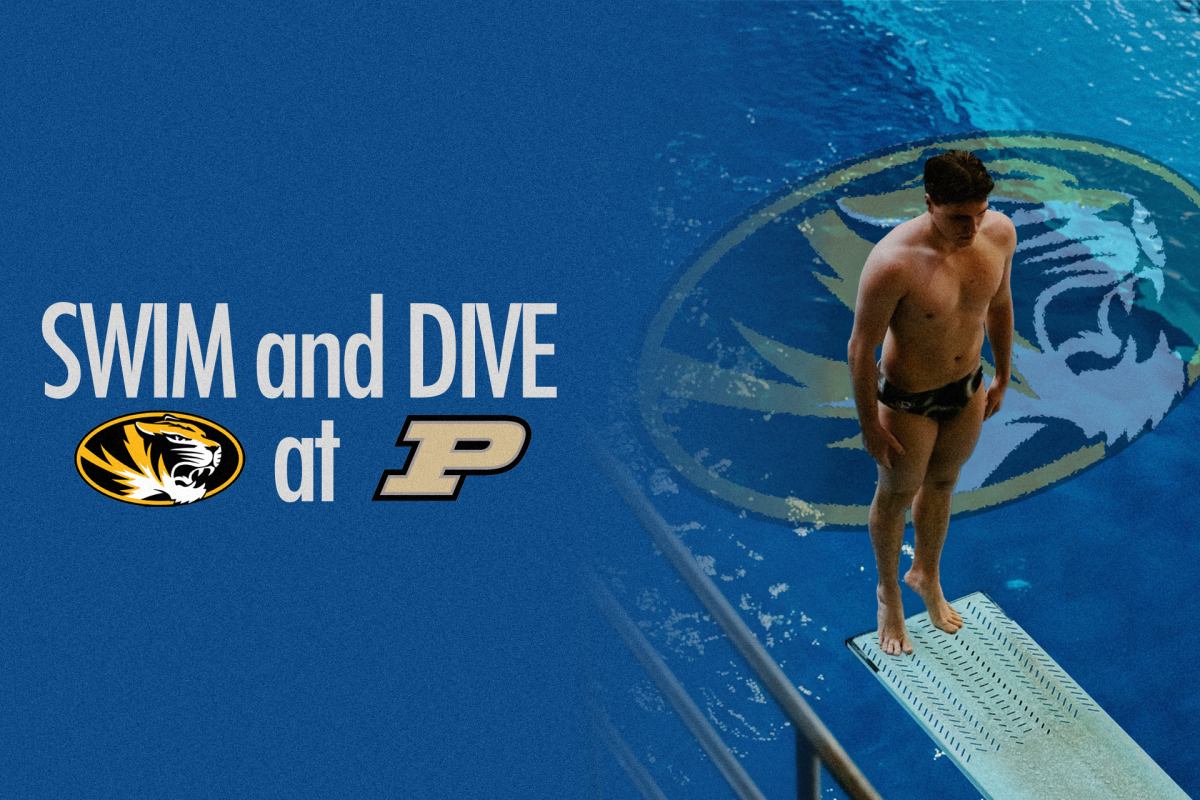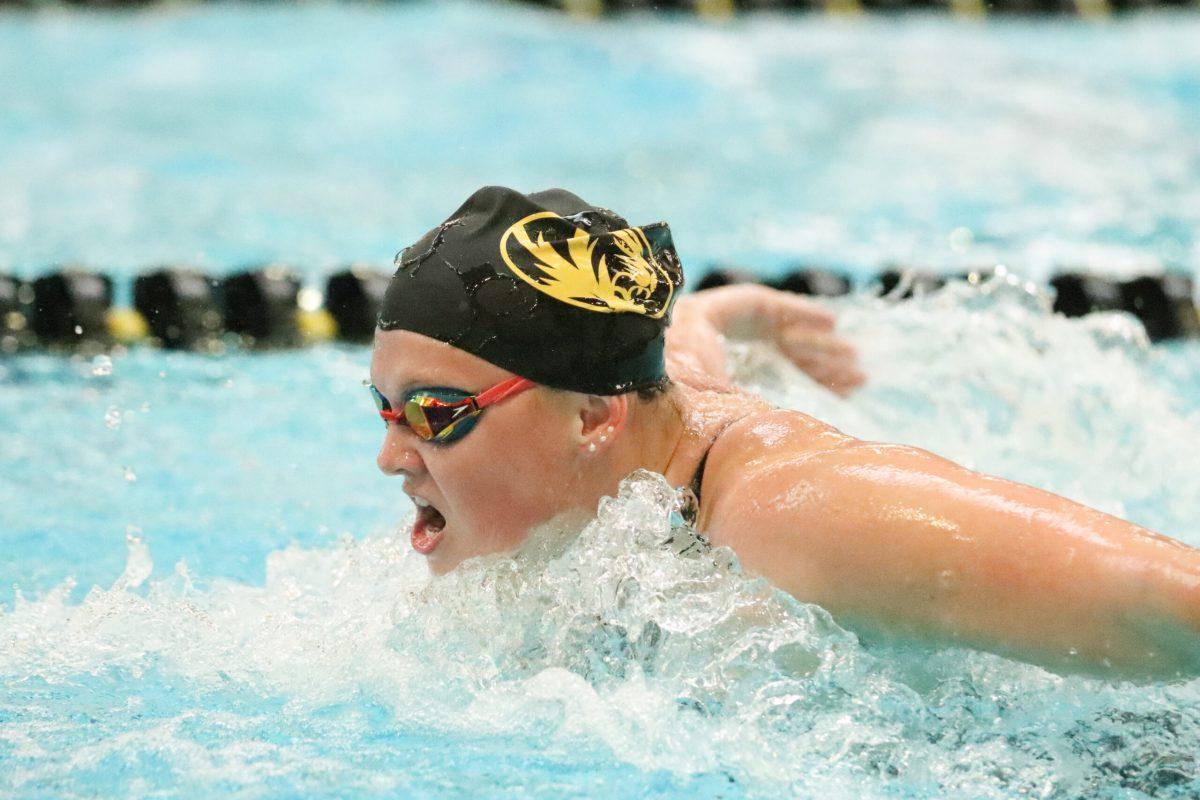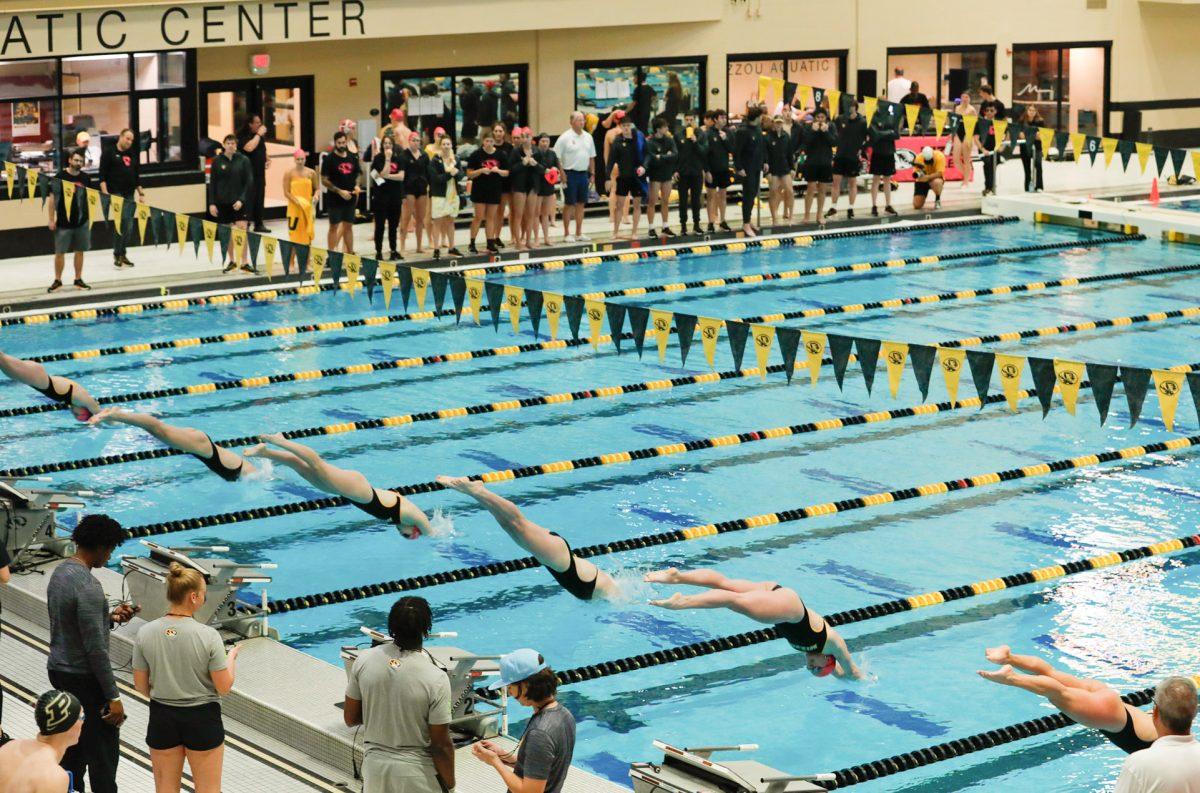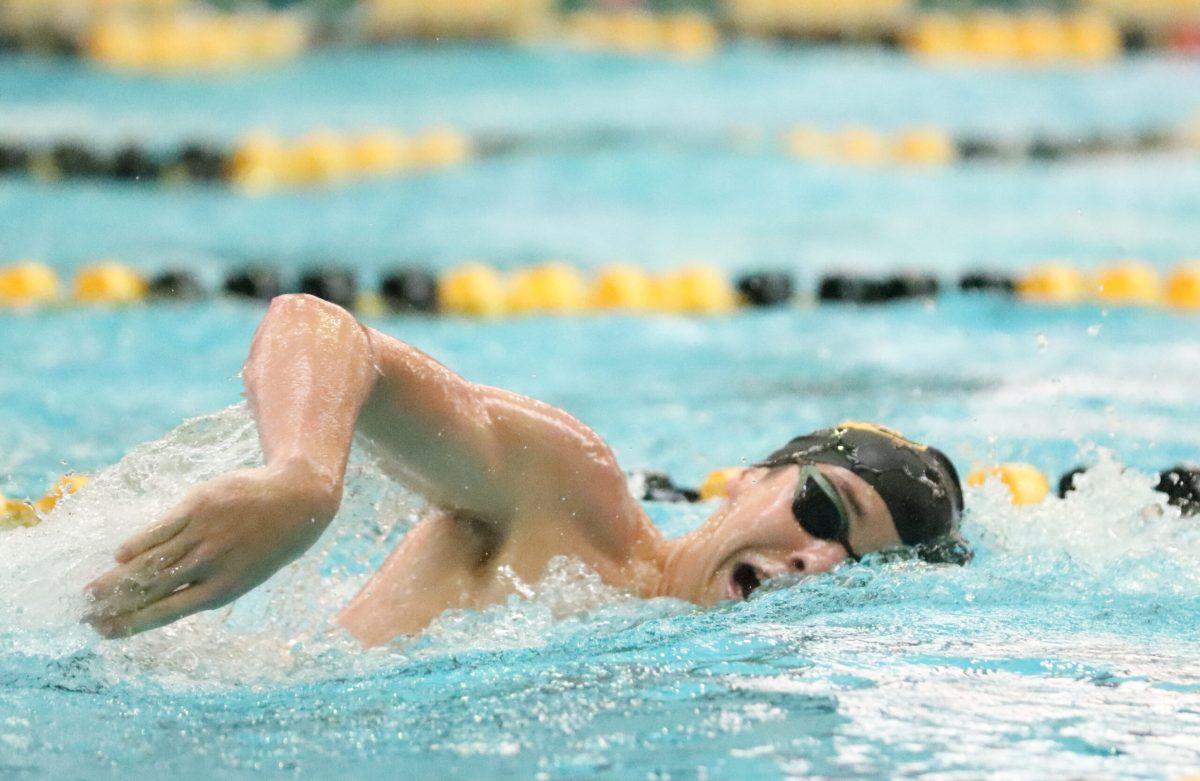In the early hours of the morning on Aug. 12, Dominique Bouchard looked into her computer’s webcam. It had been a long day for the 25-year-old Missouri graduate; a day of excitement, competition and, ultimately, crushing disappointment.
Hours before opening her computer, Bouchard had finished ninth in the 200-meter backstroke at the Olympic Games. She found herself one place and .23 seconds away from her lifelong goal: making the final of an Olympic event.
“At least you didn’t disqualify your last race,” Adam Abernathy, Bouchard’s boyfriend, said to her over Skype. Abernathy knows the pain of a disappointing race; he disqualified in his last swim as a Tiger.
In a night full of sadness and frustration, Bouchard found her boyfriend’s playful comment helpful. It did not take away the pain from coming up just shy of her Olympic aspirations; that pain still lingers. But the support she felt from her loved ones — especially her parents and boyfriend — made handling the disappointment easier.
Still, many people could not fully comprehend her sadness.
“They see, ‘Oh, you went to the Olympics,’ and ‘Oh, that’s such a big deal,’” Bouchard said. “And I know it’s a huge deal, and it was my dream come true, but once you get here and you know that you’re one of the best in the world … and then you kind of get below what you expected it’s really hard.”
Bouchard placed sixth at the 2015 World Championships last summer, and her time was nearly a second quicker than what she went in Rio. The 25-year-old knew she was capable of swimming faster, and it was difficult for her not to realize her potential.
After she found out the final results of the 200-meter backstroke, Bouchard held back tears through two interviews (one in English, one in French) with the Canadian Broadcasting Corporation. She tried to contain her emotions for as long as she could after talking to the reporter, but she ultimately broke down.
“I was bad,” she said. “I was just breaking down. I was having a hard time walking.”
Bouchard does not know what happened in her 200-meter backstroke race. She felt positive about her preparation going into the meet, and she said that she felt good at the Canadian Olympic training camp.
“I’ll never know really what happened,” she said.
In Brazil, Olympic swimming finals were held later in the evening than normal meets. It is possible that Bouchard’s body did not adjust well to the change, which may have led to slower swimming.
“Maybe my physiology just doesn’t want to be at a peak performance at 11 p.m.,” she said.
Bouchard’s 200-meter race is an example of the unpredictable nature of sports. She finished ahead of defending world champion Emily Seebohm and world record holder Missy Franklin, but she did not advance into the Olympic final.
“When you’re in that environment, crazy things can happen,” said John Pontz, Bouchard’s coach while she trained as a postgraduate at Missouri.
Despite the disappointment, Bouchard tried to make the most of her time in Rio. She watched other Olympic events, met fellow athletes (including NBA star Klay Thompson) and walked in the closing ceremonies.
Canada’s swim team had a successful Olympics, racking up six medals. The team’s success brought Bouchard mixed emotions.
“It’s so humbling to be able to be part of an Olympic team, and to be part of Swimming Canada’s best Olympic team in years is really awesome,” she said. “But on the other side, not being able to contribute to the team as much as I would have liked and wanted and that I felt like everybody else wanted is kind of a downer.”
Looking ahead, Bouchard’s future is unclear. She is set to begin a 12-week internship at the university hospital, but she is unsure if she will continue to swim competitively.
If Bouchard does continue to swim, it will probably not be at Missouri. She feels that it is time for a change, and she does not want to overstay her welcome in Columbia.
“I have a couple people I need to talk to and see where I could potentially go and train or potentially relocate or something like that,” she said. “We will see. I’m still young … and I have options and time and I have a great support system that supports all those decisions that I’ll be making, so that makes it a bit easier, too.”
Bouchard knows she has more she can accomplish in the sport of swimming.
“I think that’s what’s making it hard to make that decision to just cut ties with swimming, because I know that I can be faster,” she said. “And I think that’s something people don’t necessarily understand.”
Despite the daunting decisions ahead of her, Bouchard is looking forward to her internship. She will be working in the patient access department, and her job will put what she learned in her Master’s courses to the test.
Pontz describes Bouchard as bright, and he says she has a great personality. He feels she will be very successful going forward.
After Bouchard finished what may have been her last Olympic race, Pontz sent her a brief text message.
“I’m still proud,” it read.
“The goal was to get (to the Olympics),” he said. “She did that. Then the goal was to obviously get in the top eight and see what happened. And we were just a scratch off of that. I’m proud of what she did … I’m proud to be her coach.”
_Edited by Tyler Kraft | [email protected]_


